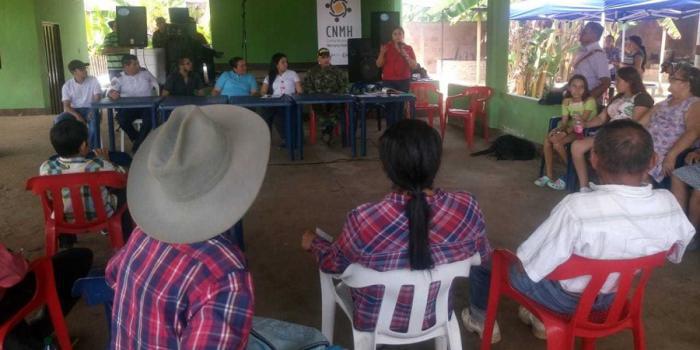
Diagnosis of the damage of the collective subject La Chapa, in Casanare, began
The Victims Unit seeks to rebuild coexistence among the members of the township, and reestablish the community's trust in the State.

In the Territorial Committee for Transitional Justice of the municipality of Hato Corozal (Casanare), the Victims Unit socialized the Collective Reparation Route for La Chapa district.
According to the territorial director of the Unit in Meta and Llanos Orientales, Carlos Pardo Alezones, “the collective reparation route is the way to heal wounds and rebuild a productive and harmonious life in community, hand in hand with the victims and with a state that can be trusted”.
La Chapa's collective reparation process begins to go through the third of five phases, called damage diagnosis, in which it is intended to measure the negative impact that the armed conflict had on the attributes that define the collective subject.
In this phase, psychosocial tools will be applied that seek to strengthen relationships of trust and the coexistence of collective subjects who are victims of armed conflict, and at the same time, a social and community diagnosis will be carried out, which will allow the establishment of satisfaction, restitution and guarantees of non-repetition.
“We are going to promote scenarios for the elaboration of collective grief, as an expression of the suffering of these victims; for social and sports practices, in order to regain coexistence; the transformation of scenarios to facilitate and support memorial actions, and the reflection on the violation of human rights”, explained Pardo Alezones.
To this end, a first approach with the ccommunity in October, however, the date is subject to modification due to the restrictions that may be generated in response to the covid-19 pandemic.
On the same day, the committee approved the work plans, contingency, and prevention, protection and guarantees of non-repetition of the municipality of Hato Corozal.
(End/CAA/CMC/LMY)






